Countertop Surfaces
We’ve included details about the benefits and maintenance recommendations for each type to assist in your selection of the best surface for your project.
Popular Countertop Surfaces
The 8 most popular choices for countertop surfaces

Granite
Granite is a natural material that is both distinctive and durable for a beautiful kitchen. Granites may have some white in the background, but mostly they are found in colorful shades with striking flecks – reds, greens, golds, creams, rusts, blues, silvers and even blacks are colors you can find in granite. Granite has a lower porosity than some natural stones, and many types of granite do not need to be regularly sealed. Some types of granite may need to be sealed at the time of installation.
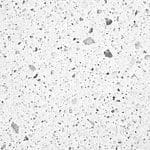
Quartz
Quartz is a marriage of a natural mineral and modern technology. The natural mineral quartz is, by itself, not much more than a sandy powder. Bonded together with manmade polymers, it becomes a highly durable countertop selection with the sparkling beauty of a natural looking stone and the wherewithal to hold up in the kitchen. As a manmade product, it can also be produced in a variety of colors to meet the demand for the most popular looks – it is even available in options that look like granite and marble.
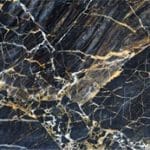
Marble
Marble is also a natural stone that is easily recognizable. Its characteristic veining and bold, white backdrop makes it a classic option that can achieve modern looks. Marble is most commonly known as a bright white or grey look, but it also comes in other shades like pinks, blacks, oranges and reds. Marble is a porous stone and it is known to absorb spills as well as scratch and etch. With proper care, a marble countertop will stay beautiful so don’t rule it out.
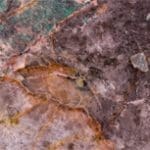
Quartzite
Quartzite is often confused with quartz, but it is not the same. Quartzite is a natural stone that originated as sandstone and also includes the mineral quartz, which is what gives it sparkle. In essence, quartzite is a fusion of marble and granite, creating the elegant look of marble, with the durability of granite. Like quartz countertops, quartzite doesn’t etch, but does require sealing to protect its natural beauty.
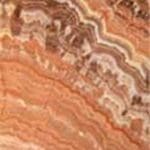
Onyx
Onyx countertops are a rare option – they are striking and luxurious and often used for vertical surfaces as bold statement walls in high-end residential and commercial designs. As a flat surface in the kitchen, onyx can be a functional piece of art you get to see every day, especially with under-counter lighting, as onyx has a transparent quality like no other. Onyx generally comes in swirling and pastel color patterns, and each piece is as unusual as the last. It is most suited as an accent countertop or bar area that does not see as much traffic
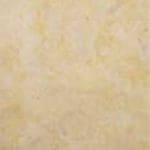
Limestone
Limestone is usually found in soft beiges and tans similar to its sister stone, marble, and is a subtle and comforting option that adds warmth and a welcoming nature to a room. It is a stone softer than granite and marble, which means it should be used as countertops in lower traffic areas or in a kitchen where hard objects will not be dropped on it to avoid cracks or chips. In terms of porosity, like granite and marble, with proper sealing, it can be protected from most kitchen culprits
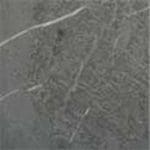
Soap Stone
Soap Stone is a classic choice that is coming back into popularity for both indoor and outdoor applications, as well as for kitchen countertops. It is a durable stone that is not very absorbent, so stains do not penetrate easily. It can be sealed or oiled, and owners who enjoy ageing a stone will see it darken with a lovely patina over the years. Soap Stone is also easily refinished and restored, so it can be updated over time if desired.
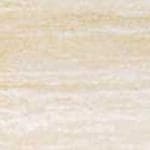
Travertine
Travertine, like quartz and granite, is a durable countertop solution, and highly versatile. The creamy neutral beiges and browns of Travertine lends itself to classic Old Word style; transforming kitchens into warm, inviting spaces. It comes in both slabs and coordinating tiles that can be used for flooring and backsplashes to create a muted look.
